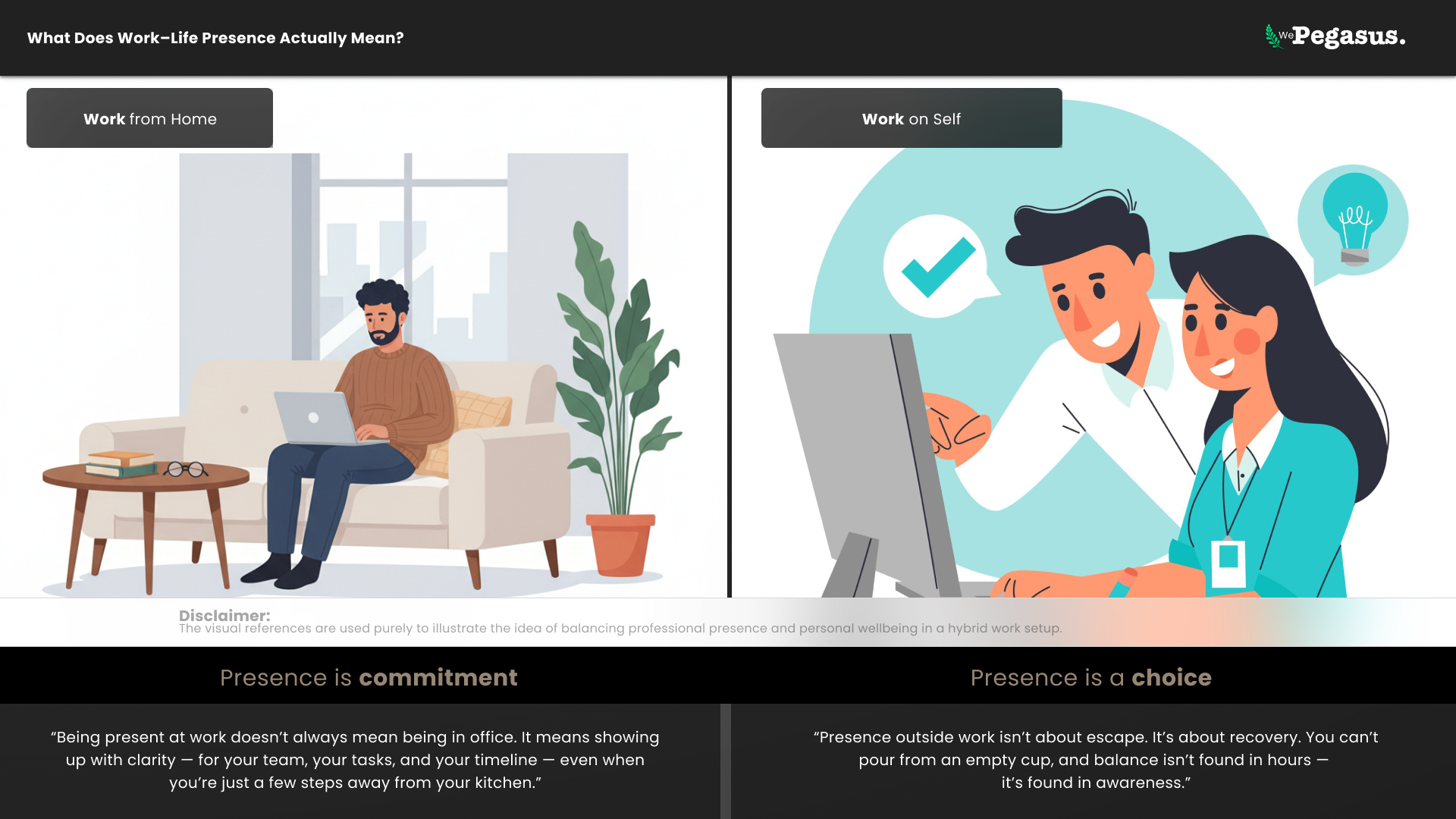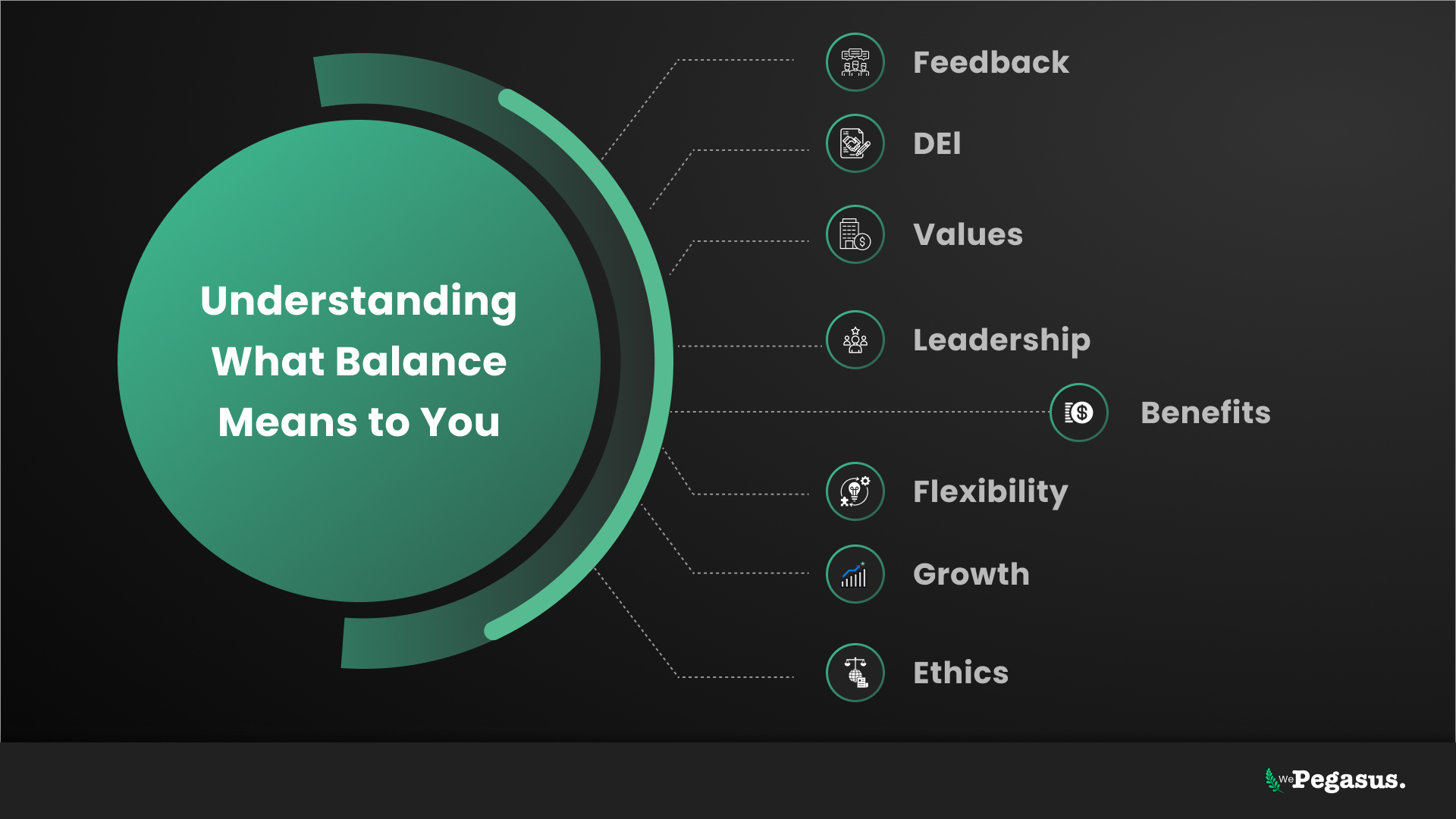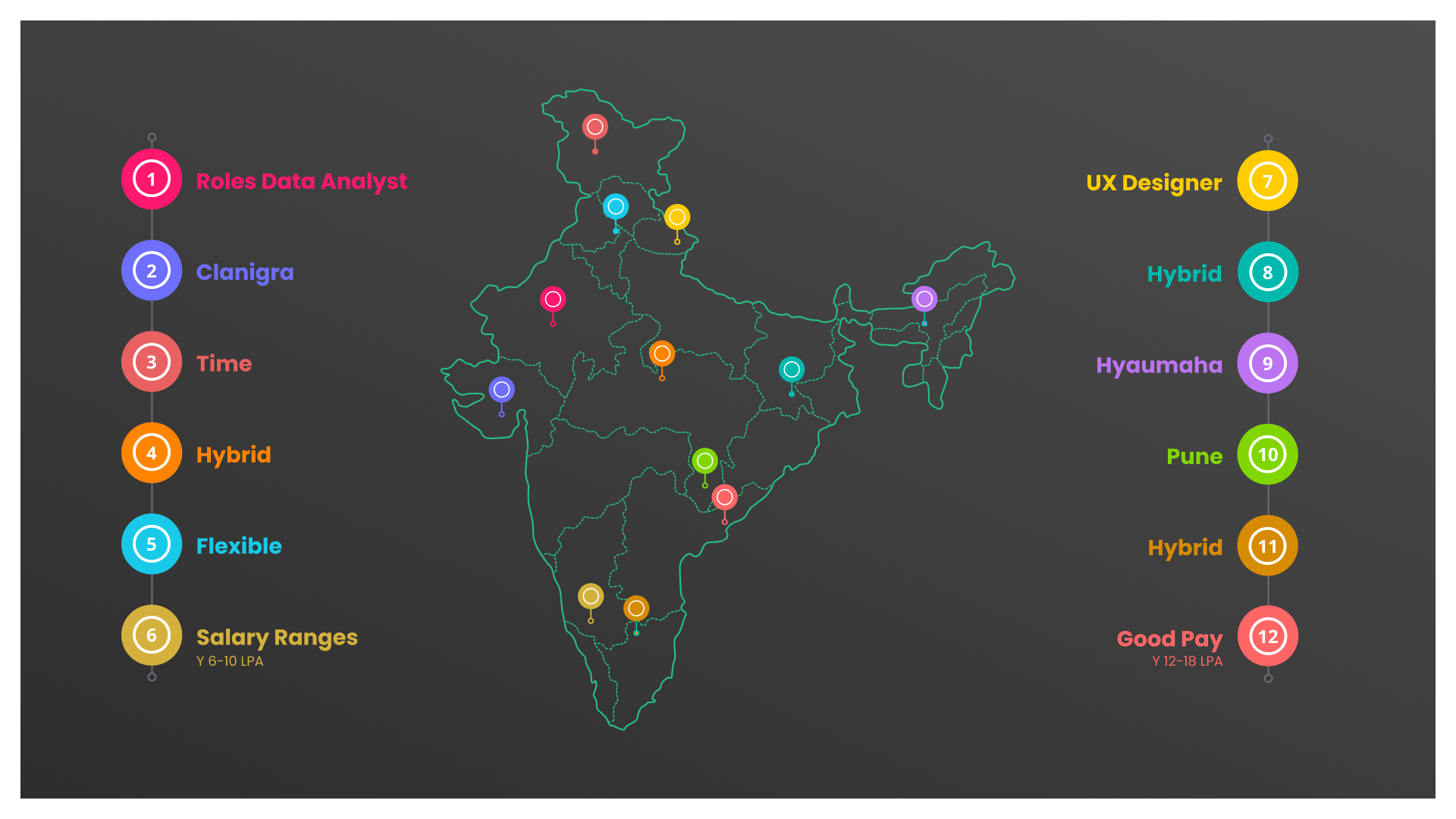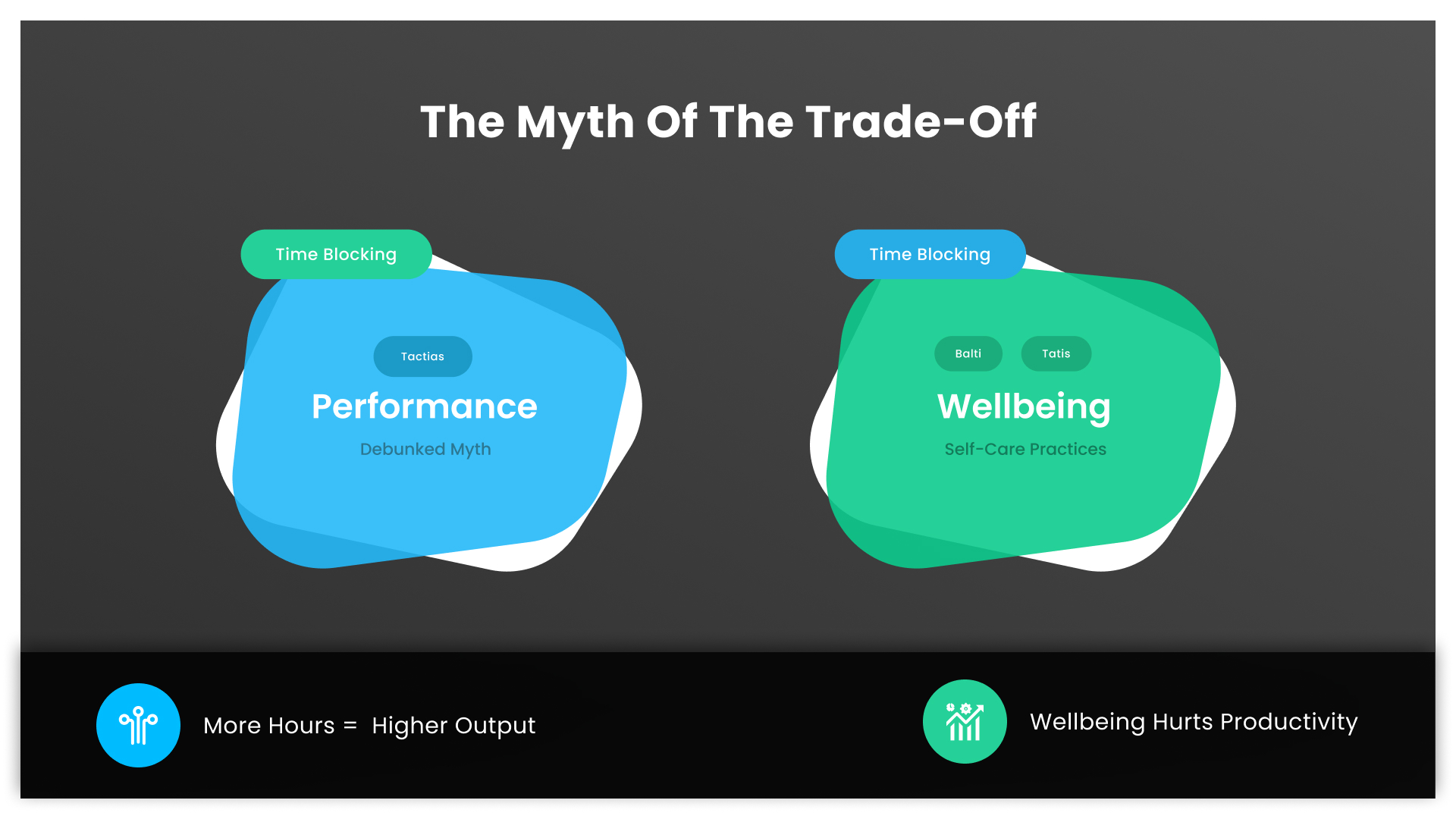Introduction: Why Work-Life Balance Matters More Than Ever
Last year, a young software engineer from Bangalore, Priya, found herself working 12-hour days at a global tech company. While her salary was impressive, her weekends were spent catching up on sleep, and her social life had almost disappeared. “I realized I was earning well but living less,” she said.
Priya’s story mirrors that of countless professionals, both in India and the USA, struggling to find that elusive work-life balance while chasing career progression and job satisfaction.
In today’s hyper-connected world, work follows us everywhere—emails ping during dinner, Slack messages buzz during vacations, and even weekends can feel like an extension of the workweek. This is why finding careers with good work-life balance is becoming a top priority, not just for mental well-being but also for long-term career development.
Across industries, from tech in Silicon Valley to finance in Mumbai, employees are questioning the trade-off between salary and work-life balance.
They’re asking: Can we have both success and sanity? Can there be high-paying jobs with good work-life balance that also allow for growth, flexibility, and happiness?
The good news: yes, it’s possible. With the rise of remote work, hybrid work models, and flexible schedules, professionals now have more control over how and when they work. Employers, too, are realising that happier employees mean better performance, lower burnout, and stronger job satisfaction, making balance not just a personal goal but a professional strategy.
What Is Work-Life Balance in a Career?

Imagine this: It’s 11:47 p.m. in Bangalore. Raj, a marketing executive, finally closes his laptop after a “quick catch-up call” that somehow turned into a two-hour strategy meeting. As he drags himself to bed, his smartwatch vibrates, “You’ve been inactive for 9 hours today.” Raj sighs, thinking, “Even my watch is judging me.”
Welcome to the modern career hustle, where “flexible schedule” sometimes means “available 24/7.”
Defining Work-Life Balance Beyond Buzzwords
At its core, work-life balance means managing work hours, career growth, and personal time in a way that allows you to thrive both professionally and personally. It’s about finding time for what matters, your health, family, hobbies, or even that Netflix show you keep pausing for deadlines.
True job satisfaction comes when career progression doesn’t come at the cost of your peace. It’s not about doing less work; it’s about doing meaningful work without burnout.
In countries like India and the USA, where long commutes, late-night calls, and global teams are common, careers with good work-life balance have become the new gold standard. Employees today look for remote or hybrid jobs that pay well but also allow space for mental clarity and personal growth.
The Changing Face of Balance
Gone are the days when “balance” meant clocking out at 5 p.m. sharp. In the digital age, balance looks different for everyone. For some, it’s taking a mid-day gym break during remote work. For others, it’s negotiating a flexible schedule to pick up their kids from school.
The rise of hybrid work has blurred the line between office and home, sometimes too much. One Reddit user hilariously shared how he joined a Zoom meeting from his kitchen, only to realize halfway through that his toddler had been waving a banana on camera the whole time.
Yet, these moments remind us that balance isn’t about perfection; it’s about presence.
Why It’s More Important Than Ever
With stress, burnout, and declining engagement levels becoming global issues, maintaining work-life balance isn’t just about feeling good, it’s a survival strategy. Studies show employees with a strong balance report 20–30% higher productivity and lower turnover rates.
And perhaps the best part? Employers are catching on. From startups in Bangalore to Fortune 500 companies in the USA, organizations are offering remote work, wellness days, and flexible policies to ensure employees don’t just “work for a living”, they actually live.
How to Find a Career with Good Work-Life Balance
Understanding What Balance Means to You

Before searching for careers with good work-life balance, it’s important to define what “balance” actually means for you. For some professionals, it’s about having a flexible schedule that allows more personal time. For others, it’s about finding jobs that pay well without demanding late-night calls or long commutes. Work-life balance looks different depending on your industry, lifestyle, and stage of career development.
Evaluating Company Culture and Policies
One of the best ways to find jobs offering work-life balance is to research company culture before applying. Look for organizations that promote remote work, hybrid work options, wellness initiatives, and realistic expectations for work hours. In both the USA and India, companies like Google, Salesforce, TCS, and Infosys have gained a reputation for providing careers with good work-life balance and supporting employee well-being.
Check platforms such as Glassdoor or LinkedIn for reviews that mention job satisfaction, career progression, and work-life balance. A company that values balance will usually show it through transparent communication, employee testimonials, and flexible HR policies.
Targeting Roles Known for Balance
Certain industries and job types are naturally more supportive of balance. In the USA, roles like UX designers, data scientists, and healthcare technologists often come with structured hours and high job satisfaction. In India, careers in education, digital marketing, and IT services—especially those offering remote or hybrid jobs—are considered excellent for maintaining balance.
Look for roles where productivity is measured by outcomes rather than hours spent online. This helps reduce burnout and allows steady career development without unnecessary stress.
Aligning Work-Life Balance with Career Goals
Finding high-paying jobs with good work-life balance doesn’t mean you have to compromise on ambition. Many professionals successfully achieve career progression while maintaining personal well-being. The key is to identify industries and organizations that value sustainable performance.
Ask yourself:
- Does this company encourage breaks and mental health awareness?
- Are there opportunities for career growth without sacrificing weekends or family time?
- Does leadership model healthy work habits?
By asking these questions early, you can align your career goals with the kind of work-life balance that leads to long-term fulfillment, stability, and productivity, no trade-off required.
What Jobs Offer Work-Life Balance in the USA and India
The Global Demand for Balanced Careers
As modern workplaces evolve, the demand for careers with good work-life balance is higher than ever. Employees no longer chase titles alone; they seek job satisfaction, flexible schedules, and opportunities for career progression without excessive stress or burnout. Whether you’re based in the USA or India, understanding which sectors and job roles support a healthy lifestyle can help you make smarter career choices.
Best Jobs for Work-Life Balance in the USA
In the USA, the conversation around high-paying jobs with good work-life balance has gained momentum, especially after the rise of remote and hybrid work models. Many professionals now prioritize time flexibility and wellness alongside salary.
Here are some of the best jobs offering work-life balance in the US:
- Data Scientists – Known for strong pay and flexible hours, data science allows professionals to work from anywhere while maintaining healthy boundaries.
- UX/UI Designers – These creative professionals enjoy meaningful work and project-based schedules that reduce pressure.
- Project Managers – With structured planning and defined timelines, this role supports clarity, productivity, and job satisfaction.
- College Professors – Teaching careers often allow personal autonomy, extended breaks, and stability.
- Healthcare Technologists – Balanced schedules and impactful work make this role ideal for those who want both stability and purpose.
- Human Resource Managers – HR professionals in many US companies now enjoy flexible or hybrid setups, promoting well-being and organizational growth.
Top employers like Salesforce, Microsoft, HubSpot, and Adobe are recognized for combining career development with strong work-life balance policies. Their focus on remote work and employee wellness sets a global standard.
Careers with Good Work-Life Balance in India

In India, professionals are increasingly redefining what a successful career looks like. The cities of Bangalore, Hyderabad, Pune, and Chennai are seeing a surge in jobs that pay well yet allow flexible schedules and hybrid setups.
Some of the top careers with good work-life balance in India include:
- Software Developers and IT Professionals – Many tech firms now offer remote or hybrid jobs that promote flexibility and continuous career growth.
- Digital Marketing Specialists – Project-based work and creative flexibility make this an excellent choice for work-life harmony.
- Educators and Trainers – Structured work hours and high job satisfaction define this field.
- Government Officers and Public Sector Roles – Predictable work hours, steady income, and long-term stability ensure reduced stress.
- Consultants and Business Analysts – The rise of digital tools enables consultants to work efficiently with clients without constant travel.
Indian companies such as Infosys, TCS, Wipro, and Zoho are leading the way with initiatives that promote mental well-being, shorter work hours, and career progression opportunities.
Choosing What Fits You
When comparing work-life balance vs career growth, remember that the ideal job aligns with both your financial goals and lifestyle preferences. Whether you aim for remote or hybrid jobs with work-life balance, or flexible careers that pay well, focus on industries where output is valued more than hours.
Ultimately, the best jobs offering work-life balance—in the USA or India—are those that respect your time, encourage growth, and nurture happiness as part of your professional success.
Bottom of Form
Is It Possible to Get High-Paying Jobs with Good Work-Life Balance?
For many professionals, the ultimate career question is: Can you earn well and still have a life outside work? The belief that high-paying jobs automatically come with stress and long work hours is slowly fading. In reality, several industries now offer jobs that pay well while also prioritizing employee wellness, flexible schedules, and sustainable career progression.
The Changing Definition of Success
In both the USA and India, the idea of success is evolving from “more money” to “more meaning.” Tech giants, consulting firms, and creative industries are proving that balance and salary can coexist. Companies like Google, Adobe, Salesforce, TCS, and Zoho are investing in remote work options, hybrid models, and mental health programs to reduce burnout and increase job satisfaction.
Work-Life Balance vs Salary: Which to Prioritize?
It’s not always a choice between work-life balance vs salary — the key is to identify roles where performance and outcomes matter more than presence. Flexible careers that pay well, such as those in data science, UX design, digital marketing, and finance, are prime examples. These allow strong career development without sacrificing time for family, health, or personal goals.
The Smart Professional’s Approach
The best strategy is to choose companies that value sustainable growth. During interviews, ask about work-hour expectations, remote policies, and wellness initiatives. Prioritize roles that align your career growth with your well-being. When your workplace respects your boundaries, high-paying jobs with good work-life balance stop being a myth — they become a reality.
Work-Life Balance vs Career Growth: Do You Have to Choose?
Many professionals fear that maintaining work-life balance might limit career progression. However, modern organizations increasingly view balance as a driver of productivity, not a barrier.
Learning how to balance career growth and work life balance involves:
- Prioritizing tasks and setting boundaries.
- Seeking career development opportunities within flexible roles.
- Leveraging remote work tools for efficiency.
When done right, you can climb the corporate ladder without compromising on family time or hobbies.
Tips for Improving Work-Life Balance in Demanding Jobs

The Myth of the Trade-Off
For years, professionals believed there was an unavoidable trade-off between salary and work-life balance — that to climb the ladder, one must sacrifice sleep, weekends, and personal time. However, today’s workplace trends show a different reality. Modern careers prove that career progression and work-life balance can coexist if you make intentional choices about where and how you work.
In industries across the USA and India, organizations are redesigning roles to promote sustainable productivity. Instead of rewarding long hours, they focus on innovation, teamwork, and outcomes. This shift is helping employees pursue career growth without compromising mental well-being or job satisfaction.
Growth Without Burnout
The key to balancing professional ambition and personal happiness lies in mindset and structure. Professionals who thrive in high-paying jobs with good work-life balance often follow certain principles:
- They prioritize quality over quantity of work.
- They choose companies that value output, not attendance.
- They actively set boundaries to prevent burnout and manage stress.
By mastering time management and communication, it’s possible to grow your career steadily while maintaining a flexible schedule. In fact, employees with better balance often demonstrate higher creativity, focus, and career development potential.
The Employer’s Role
Employers play a crucial role in making work-life balance vs career growth a false dichotomy. Leading organizations in both markets — from Salesforce and Adobe in the US to Infosys and Wipro in India — are redefining growth by emphasizing results, well-being, and long-term sustainability. Through remote work, hybrid work policies, and skill-based promotions, they empower professionals to grow without exhaustion.
Striking the Right Balance
To achieve harmony, set career goals aligned with your personal priorities. Evaluate opportunities not just by pay or title, but by their ability to support your holistic growth. The best careers today are those where career development and work-life balance move hand in hand, creating success that’s not just measurable, but meaningful.
Tips for Improving Work-Life Balance in Demanding Jobs
Maintaining work-life balance in demanding roles is challenging, but with the right strategies, it’s entirely possible to achieve career progression while protecting personal well-being. Even high-pressure positions in tech, finance, or healthcare can support job satisfaction if approached intentionally.
1. Prioritize and Plan Your Work
Start by identifying tasks that directly impact your career development. Focus on high-value activities and delegate or defer less critical ones. This approach reduces unnecessary stress and excessive work hours, helping you maintain a healthier rhythm.
2. Set Clear Boundaries
Establish boundaries between work and personal life. Avoid checking emails or work messages outside your designated hours, even if you have a remote or hybrid job. Clear boundaries prevent burnout and improve overall job satisfaction.
3. Embrace Flexible Work Options
If your industry allows, explore remote work or hybrid work arrangements. Flexible schedules enable you to manage professional responsibilities while attending to personal needs, improving both productivity and well-being.
4. Take Regular Breaks
Frequent short breaks during the workday help maintain focus, reduce fatigue, and enhance career growth. Use breaks to stretch, meditate, or step outside — even small pauses have a big impact on work-life balance.
5. Invest in Self-Development
Upskilling or learning new tools boosts your career progression without extending work hours. It also positions you for high-paying jobs with good work-life balance in the future.
6. Communicate Openly
Speak with managers about workload, deadlines, and flexible schedules. Companies that prioritize job satisfaction and work-life balance often welcome transparent conversations about employee needs.
By following these strategies, professionals can thrive in demanding jobs, achieving both career growth and personal fulfillment. Prioritizing balance isn’t a compromise, it’s a sustainable path to long-term success.
Work-Life Balance as a Career Goal
Traditionally, work-life balance was considered a perk or luxury. Today, it has evolved into a conscious career goal. Professionals no longer view long hours and constant availability as markers of success. Instead, they prioritize career progression alongside personal well-being, recognizing that job satisfaction depends on sustainable work practices.
To make work-life balance a career objective, it’s essential to align your professional choices with your lifestyle priorities. This means targeting jobs that pay well, yet offer flexible schedules, remote or hybrid work, and realistic work hours. Careers in tech, healthcare, education, and consulting increasingly provide this balance, allowing employees to excel professionally without sacrificing personal life.
High-performing professionals also understand the value of setting boundaries, planning their time strategically, and communicating their needs with managers. Companies today measure performance by outcomes rather than hours spent online, creating a work culture that fosters career development while protecting mental health.
By consciously pursuing roles and organizations that value balance, employees can achieve a dual goal: meaningful career growth and a fulfilling personal life. This approach turns work-life balance into a tangible metric of success rather than an abstract idea.
Final Thoughts
Finding careers with a good work-life balance is no longer impossible. Professionals in the USA, India, and other global markets can now pursue high-paying jobs with good work-life balance, flexible careers that pay well, and roles that support career progression without compromising well-being.
The future of work emphasizes sustainability. Remote or hybrid jobs and flexible schedules are becoming standard, and companies increasingly recognize that happier, balanced employees are more productive and innovative. When considering a career move, focus not just on salary but on job satisfaction, career development, and the ability to maintain a healthy lifestyle.
Ultimately, work-life balance is more than a benefit—it’s a strategic career goal. By choosing roles that align with your values, setting boundaries, and leveraging flexibility, you can achieve professional success and personal fulfillment simultaneously.
Balancing career ambitions with personal well-being is no longer a trade-off. It is the hallmark of a successful, modern career—a blend of growth, satisfaction, and sanity that professionals in India, the USA, and beyond can genuinely achieve.
SOURCES:
Official Government Sources
- U.S. Citizenship and Immigration Services (USCIS) – H-1B Electronic Registration Process
https://www.uscis.gov/working-in-the-united-states/temporary-workers/h-1b-specialty-occupations/h-1b-electronic-registration-process - U.S. Citizenship and Immigration Services (USCIS) – H-1B FAQ
https://www.uscis.gov/newsroom/alerts/h-1b-faq - U.S. Department of Homeland Security – DHS Strengthens H-1B Program
https://www.dhs.gov/archive/news/2024/12/17/dhs-strengthens-h-1b-program-allowing-us-employers-more-quickly-fill-critical-jobs - Federal Register – Weighted Selection Process for H-1B Petitions (Proposed Rule)
https://www.federalregister.gov/documents/2025/09/24/2025-18473/weighted-selection-process-for-registrants-and-petitioners-seeking-to-file-cap-subject-h-1b - USCIS – FY 2026 H-1B Cap Initial Registration Period Announcement
https://www.uscis.gov/newsroom/alerts/fy-2026-h-1b-cap-initial-registration-period-opens-on-march-7
Immigration Law Resources
- Tondini Law – H1B Application Deadline 2025: What You Need to Know
https://tondinilaw.com/h1b-application-deadline-2025-what-you-need-to-know/ - NNU Immigration – H1B Application Deadline 2025
https://www.nnuimmigration.com/h1b-application-deadline/ - Visa Lawyer Blog – New Final Rule Brings Major Changes to the H-1B Visa Program in 2025
https://www.visalawyerblog.com/new-final-rule-brings-major-changes-to-the-h-1b-visa-program-in-2025/ - International Legal and Business Services Group – 2025 H-1B Visa Material Changes After Approval Guide
https://bizlegalservices.com/2025/02/12/2025-h-1b-visa-material-changes-after-approval-guide/ - Reddy Neumann Brown PC – Preparing for FY2027 H-1B Cap Season
https://www.rnlawgroup.com/preparing-for-fy2027-h-1b-cap-season-what-employers-should-do-now/
Immigration Information Platforms
- RedBus2US – H1B Visa 2027 GUIDE: Timelines, Dates, Lottery, News
https://redbus2us.com/visas/usa/h1b-visa/fy-2027-season/ - RedBus2US – H1B 2026 Season Starts on March 7, 2025
https://redbus2us.com/h1b-2026-season-starts-news-uscis/ - IMMI-USA/VisaNation – H-1B Cap: Complete Guide on Process, Timelines, Registration, Fees
https://www.immi-usa.com/h1b-visa-2018-cap/ - Boundless – USCIS Announces H-1B Registration Dates for FY 2026
https://www.boundless.com/blog/uscis-announces-h-1b-registration-dates-for-fy-2026/
Legal & Professional Services
- Dorsey & Whitney LLP – Recent Updates to the H-1B Registration Process for FY 2026
https://www.dorsey.com/newsresources/publications/client-alerts/2025/1/h1b-registration-process-updates - Ruder Ware – USCIS Unveils Key Dates and Fee Increase for FY 2026 H-1B Cap Registration
https://www.ruderware.com/legal_updates/uscis-unveils-key-dates-and-fee-increase-for-fy-2026-h-1b-cap-registration/ - Through The Immigration Lens – FY2026 H1B Cap Initial Registration Period Announced
https://www.throughtheimmigrationlens.com/2025/02/fy2026-h1b-cap-initial-registration-period-announced/
Educational Resources
- TASB (Texas Association of School Boards) – H-1B Visa Changes
https://www.tasb.org/news-insights/h-1b-visa-changes


